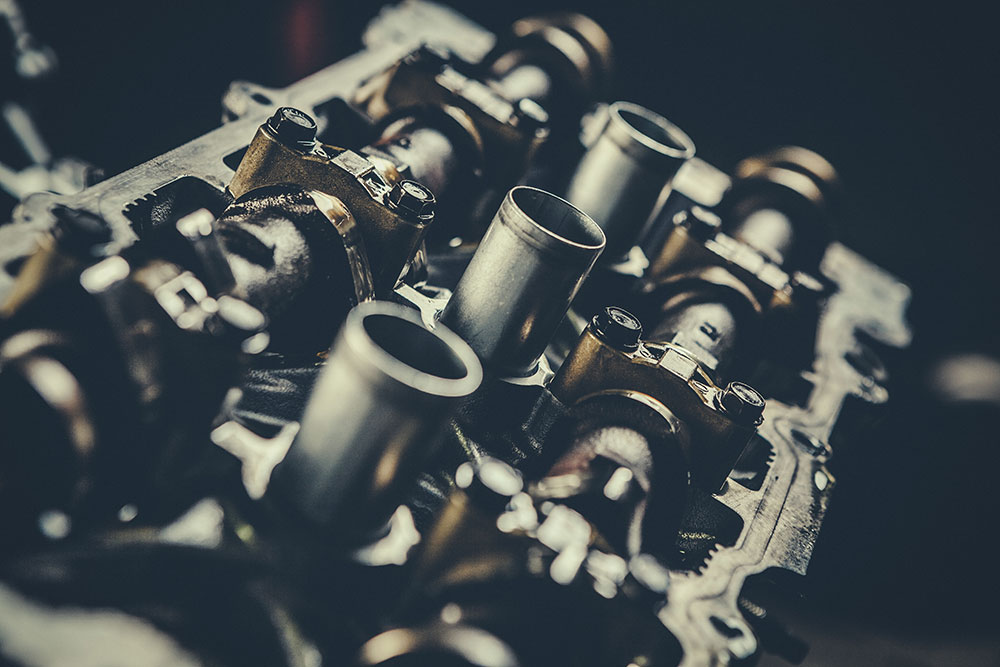For increased safety on the roads
OELCHECK's oil and coolant analyses help you detect problems early, ensuring oil changes are only performed when they are absolutely necessary.
OELCHECK's oil and coolant analyses help you detect problems early, ensuring oil changes are only performed when they are absolutely necessary.
The service life of engine oils in cars, lorries or motorcycles is influenced by the oil and fuel quality as well as operating conditions. The engine manufacturers of course base their recommended oil change intervals on a worst-case scenario. As such, under favourable conditions, reserves are often available. This means that the oil can be used for longer than specified by the manufacturer, where applicable, for reasons such as improved oil quality and optimum engine operation. Consequently, cost savings are made as a result of less frequent oil changes.
As engine oils become thinner and oil quantities become smaller, the lubricating film becomes weaker. It is therefore more sensitive to pollution and changes. In particular, mixing with petrol, which is even thinner, can have fatal consequences. If the fuel content of the engine oil is too high, or if the combination of wear metals indicates damage to bearings, pistons or valves, OELCHECK's all-inclusive analysis kits can be used in a targeted manner to detect the cause and then to eliminate it.

The power density of engines is increasing. They now all have turbochargers, which pose a challenge to the oil due to their high thermal load. Fuel economy engine oils are increasingly thin. Smaller quantities are used, which leads to a thinner and more sensitive lubricating film. In order to comply with exhaust gas standards, diesel engines are operated in conditions which are not ideal. Regular lubricant analyses help detect unwanted changes and problems with lubrication early.
![[Translate to "English"] Ölanalysen für Dieselmotoren](/fileadmin/user_upload/img/branchen/automotiv/entwicklung.jpg)
Coolant analyses provide information regarding the condition of the coolant, the water quality, any decomposition products and impurities and the amount of additives remaining in the coolant. These values are used to determine to what extent the coolant is still up to its job and should continue to be used. The lab report also deals with mixtures which may cause cavitation or foaming. The coolant analysis is the perfect complement to the oil analysis.
![[Translate to "English"] Kühlmittelanalytik](/fileadmin/user_upload/img/branchen/automotiv/kuehlmittel.jpg)
Quality of or impurities in diesel fuel can also be investigated. This indicates whether engine issues are caused by the fuel quality or whether the vehicle is being filled up with winter diesel.
![[Translate to "English"] Untersuchung von Dieselkraftstoffen](/fileadmin/user_upload/img/branchen/automotiv/kraftstoff.jpg)
The brake fluid is essential for the functioning of the brakes and should be changed regularly. It absorbs water, e.g. from air. Steam bubbles can form at high temperatures and impair the braking function when too much moisture is in the fluid. The absorbed water increases corrosion in the system and lowers the boiling point of the brake fluid.
It is divided into the classes DOT 3, 4, 5.0 and 5.1. Higher grades are more temperature resistant and less hydroscopic. The different classes should not be mixed. The manufacturer's recommendation must be observed. With an analysis, you can examine e.g. the water content and the boiling point of the brake fluid. The results provide information on the need for changing the brake fluid. For your information: Brake fluids based on silicone oil according to DOT 5.0 are not analysed by OELCHECK.
If you misplaced or soiled your Sample Information Form, you can select the appropriate form here, complete it and enclose it with your delivery or use our convenient online sample registration system via the OELCHECK-App or www.lab.report.
Hydraulics Gears Engines Fuels Coolant and anti-freeze agents